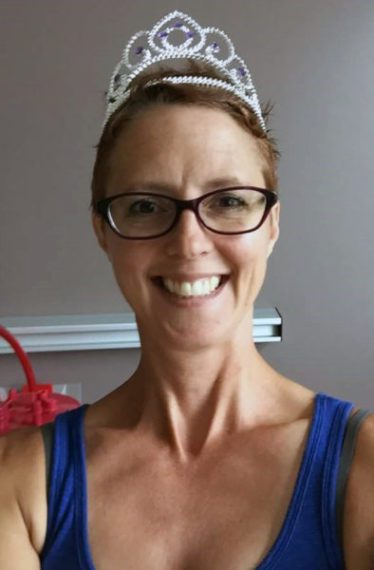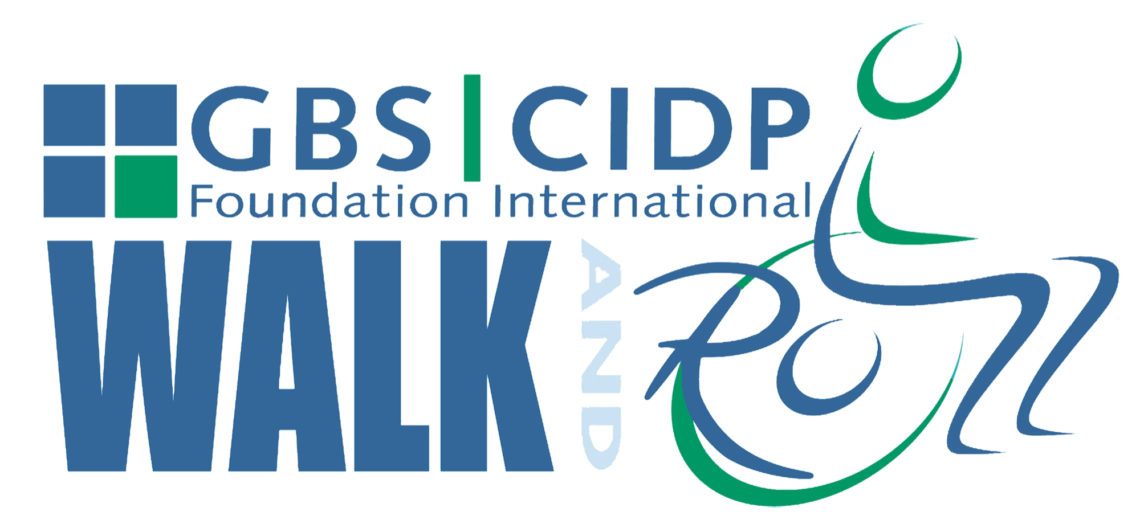Alethea’s Story

In 2011, I was stronger and healthier than I had ever been in my life. My youngest son, Benjamin, had been diagnosed with leukemia late in 2009, and by mid-2010, I had stress eaten to my highest weight ever, and my husband and I decided that for my health and well-being, starting an exercise routine was the path I needed to embark upon. I embraced the workouts, finding that exercise lent organization and order to my over-taxed mind, and strength and shape to my frame.
I kept up with the workouts, reaching the pinnacle of my accomplishments by running a half marathon in the fall of 2011. The week of the half, my son had been quite sick with a diarrheal illness, which affected me as well, so my race performance was disappointing, but I was able to complete the distance, which was an enormous accomplishment.
As time went on, Benjamin kept having tummy trouble, and sharing it with me, until we finally discovered that he was fighting Campylobacter, which his puny immune system was unable to combat. After a stay in the hospital and a hefty course of antibiotics, Benjamin finally recovered from the infection.
In the meantime, I was fighting my own battle, having been diagnosed with mononucleosis that winter. Though it didn’t suit me at all, I rested and recovered.
In April of that year my husband had his second back surgery, and even though I wasn’t yet 100 percent healthy, I rose to the occasion, and managed the house, including our child who was still battling cancer, while my husband recovered.
On Mother’s Day, I was sitting in church, and kept noticing my feet were asleep. I became entirely distracted, able to focus only on my tingling feet, which I couldn’t alleviate no matter what position I moved into.
Time went on, and my tingling feet became tingling legs, which I stubbornly attempted to ignore because of the weight of responsibility to my family. Finally, in June, I went to my doctor, who referred me to a neurologist.
By the time I saw the neurologist, the tingling was joined by weakness, and had taken over my legs, was affecting my arms, and I struggled with bladder control. He ordered a battery of tests, all of which returned with normal results. As a last resort, I submitted to a spinal tap, which again, failed to yield information.
Then, one afternoon, in late July, while I was sitting in the oncology clinic with my son, I got a call from the neurologist, who admitted that, to his chagrin, the last of the results from the cerebrospinal fluid had returned, and indicated that I had Guillain-Barré Syndrome. At this point, well over 2 months from the start of symptoms, there was little hope that therapy would be beneficial, so I set about resting my body, and doing the best I could to recover.
As months went by I gained strength, with the goal always being for me to return to running. The goal proved elusive for nearly two years, but in spring of 2014, I was able to run a 3-mile stretch, and was able to continue to run. I made gains, and trained my way back up to the half marathon distance. In the fall of 2014, I applied to be a Road Warrior, a sponsored runner for the Fifth Third River Bank Run, a 25k race. I was accepted as a Road Warrior, and enjoyed 6 months of training with the team, and successfully completed a few 5k races, a 4 miler, a 10 miler, a half marathon, and then the 25k in May of 2015.
After that I set the goal of running the fall marathon in Grand Rapids. I trained through June, then in July I started feeling poorly, and struggled to keep up with my running schedule. I changed my running plan to the half marathon distance, as I was unable to envision completing the full marathon distance. My illness persisted throughout July, then finally, in August I began feeling better, with great relief, and resumed my efforts to train for the half marathon.
The training was short-lived, by the second week of August I was experiencing tingling in my feet again. I contacted my neurologist, who made arrangements for me to be seen that week. After my physical evaluation, it was determined that I was having a recurrence of GBS. The doctor made arrangements for me to get in home therapy with IVIG, as my symptoms were not yet mandating hospital care. After a week of waiting on insurance approval, we found out that my insurance did not deem my symptoms worth the cost of the IVIG.
Disappointed, I called the neurologist, who recommended that I go to ER, reporting progressive symptoms of GBS, which is an admissible diagnosis. By that time, the weakness in my legs was severe, with little sensation in my feet, so I packed up and went to the emergency room.
Upon arrival, I was evaluated and admitted within the hour. The doctors were surprised by my ability to accommodate with the weakness I had. IVIG was started a short time later, and my body responded with a brutal chill, accompanied by a fever. After slowing the drip, I was able to tolerate the therapy. High dose IV steroids were administered along with the IVIG, and I settled into a routine, with many visitors coming to cheer me.
I spent the rest of the week in the hospital, which included my birthday, which was Friday. By that time the steroids had me crawling the ceiling, so I asked to have them stopped. The doctors gladly obliged, and I was relieved to have that milestone crossed.
Later that evening, I began to feel my heart beating nearly through my sternum, but in super slow-motion. I was concerned when the aid took my blood pressure, which was elevated, with my heart rate down in the 40’s. I asked her to get the nurse because my chest was starting to feel heavy. After a while, having seen no sign of the nurse, I used my call button. By that time, I had the classic sensation of having an elephant on my chest. The chest pain team was called, and by that time my blood pressure was up to 178/120. I was given a medication to drop my blood pressure, which worked, and also relieved the horrific pressure in my chest.
The next morning, when the neurologist rounded in, we discussed the chest pressure and elevated blood pressure, which he believed to be a rare side effect of the IVIG, which likely had been staved off by the steroids I had gotten earlier. We made the decision to discontinue therapy, after having 3 of the 4 prescribed doses, with symptoms improved by a large margin.
It is now December, and I am profoundly thankful for the therapy I was able to receive. I was able to resume running already in September, and am back to training for a half marathon this April, and the 25k in May. My symptoms completely resolved in October, and my strength, though not what it was in May, is returning, and I am optimistic that I will be at full strength soon.
I realize that my case has been at the mild end of the spectrum, and I am grateful for that, and for my previous good health which has contributed to my remarkable recovery.

